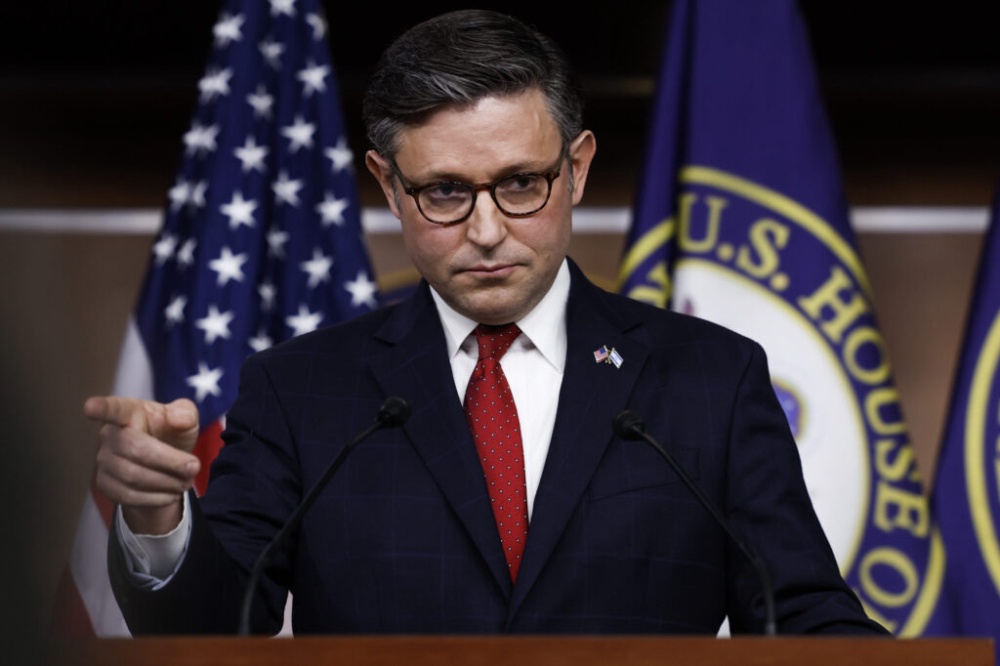Budgets, Borders, Biden, and Bureaucracy

Courtesy of Tennessee Lookout

From Issue 2, 2023-2024; Opinion
Updated Mar 4, 2024
The federal government has failed to reach a bipartisan spending agreement to keep federal government agencies funded and operating two times in the past six months. Now, we're on track for a third. After delaying the deadline to reach a spending agreement, twice, the federal government now has until Friday, February 29th to reach another agreement. However, this time, pushing the deadline back again may not be an option. In November of 2023, the deadline to reach a bipartisan spending agreement was split between January and February. Three months of unproductive bureaucracy later, yet another short-term continuing resolution was passed to push the January deadline back to March 1st and March 8th. However, the February deadline is still approaching, and fast, with no deal in sight for both the February and March deadlines.
On Tuesday, February 27th, President Biden met with several congressional leaders in a closed-door meeting focused on reaching a bipartisan deal to avert a looming government shutdown. Speaker of the House Mike Johnson told reporters that he and President Biden discussed the issue privately on Tuesday, leaving many to speculate what progress, if any, has been made on a spending agreement. Speaker Johnson told the press on Tuesday that he was “very optimistic” that a deal could be reached after an “intense” meeting with the president, according to Axios. Meanwhile, many Democratic lawmakers are openly expressing their frustration with Speaker Johnson, blaming him for the deadlock on a reaching spending deal. Speaker Johnson is now stuck in the crossfire between the far right flank of his party, who are refusing to vote for any agreement that does not make deep spending cuts. The razor-thin Republican majority in the house is being exploited by several far-right lawmakers, including members of the ‘Freedom Caucus,’ in order to achieve their demands for decreased government spending.
A New Precedent:
As the government misses more deadlines than a second-semester senior, several other pressing issues have now become inexplicably tied to any future government spending agreement, setting a new precedent for all future legislation to be used as political ploys. Ukraine continues to suffer losses on the battlefield as the future of American aid to the country remains uncertain and several attempts at passing independent legislation for aid to Ukraine and Israel have failed. The Biden administration over the last few months has quietly adopted a more ambiguous policy with Ukraine, slowly opening up to the idea of peace talks with Russia which Zelensky has vehemently opposed. Aid to Israel has also remained stalled due to the deadlock in Congress, with many hoping a potential temporary ceasefire will be reached before the Islamic holiday Ramadan. Presidential candidate Nikki Haley and many other Republicans have also raised concerns that the congressional deadlock is being observed by China as an opportunity to expand military aggression against Taiwan. The Biden administration has downplayed this risk and re-affirmed the US commitment to our allies as we begin a military build-up in the Pacific.
The ongoing crisis at the border has had a pivotal role throughout this budget circus and continues to be a focal point for Republicans, and more remarkably, many Democrats as well. The Senate brought forth a bipartisan border security bill that was declared “dead on arrival” if it ever reached the house for a vote, by Speaker Mike Johnson. President Biden also announced plans to visit the southern border for the first time since January 2023 as the number of migrants arriving in the United States continues to increase. The country’s largest cities, most notably New York, Chicago, and Denver have all been struggling to handle the busloads of migrants being shipped to them by Texas Governor Greg Abbott. New York City’s democratic mayor Eric Adams has become more vocal in his criticism of the Biden administration recently, directly saying more must be done to mitigate the situation at the southern border. House Republicans and the majority of the Republican party did not approve of the recent bipartisan border agreement pushed by the Senate and the Biden administration. This has led to the funds for increased border security also becoming lumped in with the rest of a government funding bill.
A Balancing Act:
An agreement to fund the federal government of the United States has morphed into an agreement that also funds various wars abroad and leaves much to be desired from everyone domestically. With mounting pressure on lawmakers to reach an agreement, many democrats in Congress remain pessimistic that if a bipartisan spending agreement is even reached, it will not be able to pass the house before the February 29th deadline. The Biden administration and Speaker of the House Mike Johnson are both in the midst of a delicate balancing act, trying to appeal to their party members while also reaching a consensus with each other. This effort becomes even further complicated by the fact that 2024 is an election year and both parties are trying to appeal to their polarized bases in an election that the country may not be ready to handle.
